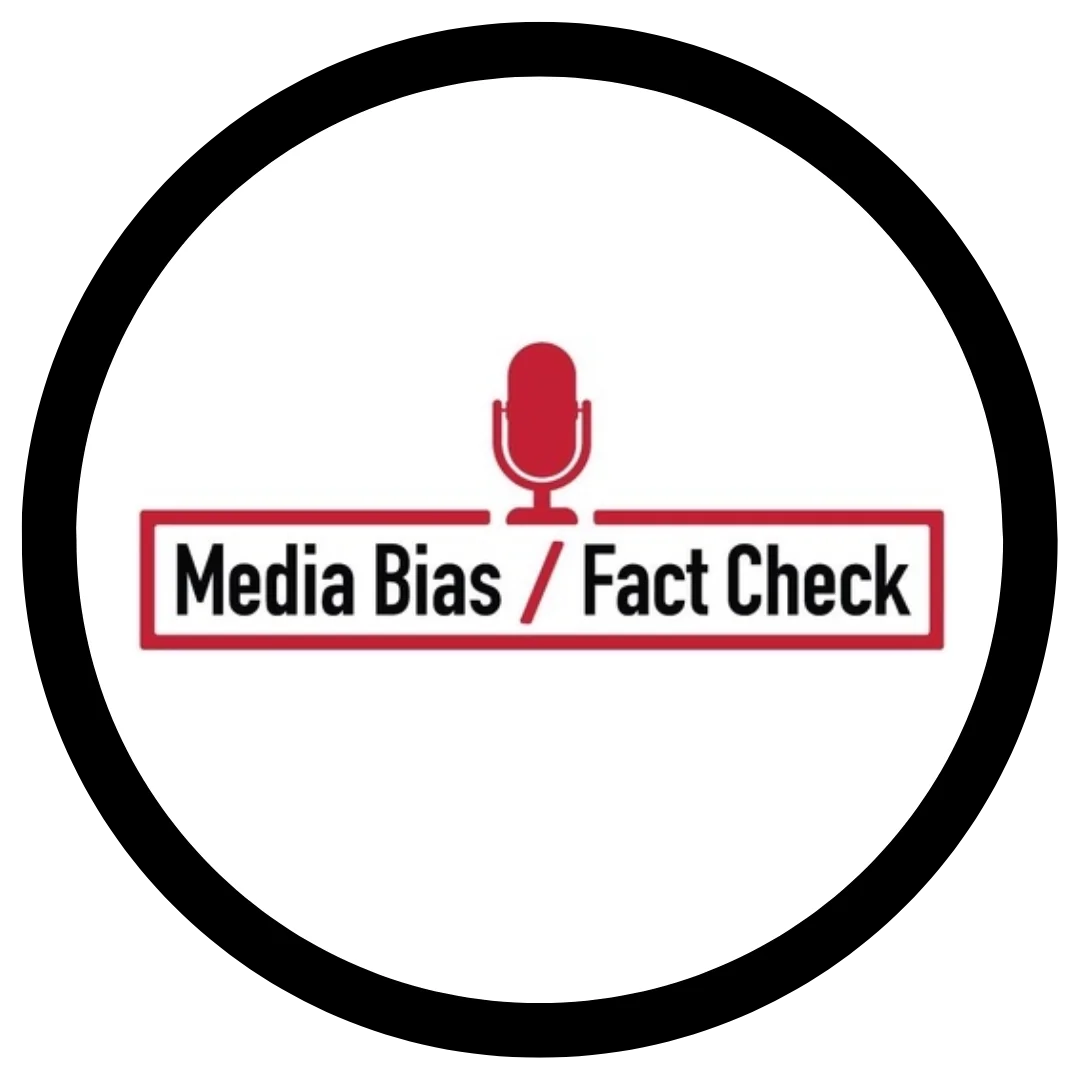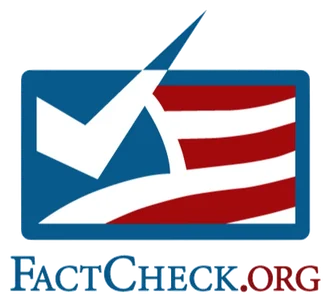Snopes began operations in 2014 as a site dedicated to investigating urban legends under the name Urban Legends Reference Pages. It is currently one of the most recognized fact-checking websites, relied on by journalists and readers for accurate information. As the oldest and largest platform of its kind, it operates independently under Snopes Media Group Inc. and has been co-owned 50:50 by Chris Richmond and Drew Schoentrup since 2022. The site adheres to the standards set by the International Fact-Checking Network to help combat misinformation. Since Snopes cannot verify every claim, it prioritizes widely circulated rumors and trending topics that may lead to confusion or misinformation.
Quick Overview
FactCheck.org positions itself as a resource for voters, working to cut through the noise and misinformation in U.S. politics. They keep an eye on major political figures, fact-checking public statements (so, info presented in ads and news releases or things said during debates and interviews). Their approach combines journalistic methods with academic research to help the public better understand political issues. FactCheck.org operates under the Annenberg Public Policy Center at the University of Pennsylvania. APPC was founded by philanthropists Walter and Leonore Annenberg in 1993 and brings scholars together to “study public policy at local, state, and federal levels.”
| TOP services | Updated February 2025 |
|---|---|

MediaBiasFactCheck
|
Read review |

Snopes.com
|
Read review |

Politifact.com
|
Read review |

FactCheck.org
|
Read review |

Washington Post
|
Read review |
Snopes has a minimalistic, user-friendly interface and is easy to navigate. There is nothing to trim; even the abundant ads, we must realize, are there to keep the site going. A separate tab dedicated to debunking scientific misinformation would be welcome on such a reputable platform, but its absence is understandable on a site that focuses more on what’s buzzing currently in politics and entertainment. And that Snopes does well: it immediately greets you with headlines you’ve already seen and overheard discussed in group chats and around the water cooler. After clicking on one, you’ll be able to contribute to such discussions confidently and will leave with links for additional reading — optional, of course, but highly recommended.

Value for Money 40/40 ⭐⭐⭐⭐⭐: Do Snopes Know What They’re Doing?
Snopes includes a quick context summary for each fact and rumor they evaluate right underneath the verdict graphic at the top of the page. Below, the team presents their findings in greater detail. If an image is involved, they investigate its origin. The language used in the articles is digestible for an average user. If the fact is partially true, Snopes deconstructs exactly where things went wrong on the path information took toward virality. For example, they will remark that a photo is legitimate, but at a certain point, it was miscaptioned.

Snopes explains how they select which facts to look into and how they approach research. To maintain neutrality, the site chooses reliable data sources: peer-reviewed journals, government statistics, etc. Snopes gets additional points for advising its readers to approach any information from political advocacy groups or partisan think tanks with skepticism when it’s referenced.
The correction policy is laid out well and, in addition to errors, covers “ambiguous statements”. If anything is off, readers can request to fix it via a contact form an editor will then evaluate. As is the rule with all IFCN members, readers can also file a complaint if they notice any violations, but are invited to address Snopes directly first.
As we mentioned, Snopes remains editorially independent under Snopes Media Group Inc., with no outside investors or parent company, and makes its calendar year reports available on the site. The site’s funding comes from three main sources: donations from individuals and non-partisan organizations, paid memberships, and digital ads.

Advertisers have no way to contact or influence the Snopes staff, and political advertisement is not accepted. Donors who contribute $10,000 and over (or, in sum, donated more than 5% of the site’s total annual revenue) are publicly disclosed. The funding is primarily used to pay the Snopes team and keep the lights on, so to speak. A more detailed expense breakdown is also presented on the site. And that’s plenty transparent in A*Help’s book!
Overall Experience 55/60 ⭐⭐⭐⭐: Snopes Will Keep Your Info Space Pristine
Snope provides a clear visual for the verdict they’ve reached during their research, which is very important in the modern age of diminishing attention spans. The verdict scale is also very detailed and features unique categories like Originated as Satire, Labeled Satire, Lost Legend, Misattributed, Miscaptioned, etc. These labels give users a lot of important context at a glance and it would be great to see them adopted on other fact-checking websites.

Every fact-check article includes a “Sources” section listing all referenced materials, which readers can expand. If Snopes contacts an individual or organization for clarification, those details are included within the article rather than in the sources list itself. Embedded media — like YouTube videos and social media posts — are not listed separately because they are mostly included for additional information.
Readers can ask Snopes to fact-check their findings and are welcome to include “articles, social media posts, or images” in the request form — there’s an “Add File” button. No comment section on the site, but you can comment on Snopes social media or chat with fellow readers in their Facebook group.

Paid members are promised exclusive access to “Snopes Community” described as “a community of like-minded people who value fact-checking” where members can “see topics that Snopes is researching before they are published and have the option to help track down information to review for fact checks”. Though such exclusivity is a good perk when paid memberships finance your operation, it knocks some points off for Snopes in the Community Engagement category.
The Verdict
Snopes is among the best fact-checking websites currently available for users. It might not cover every burning topic on your mind, but with prolonged use, you will become savvy enough to recognize disinformation patterns on your own. We recommend this site for cross-checking any factoids you’d like to include in your academic papers. Snopes will clear things up for you, both if you need a quick clarification or a detailed breakdown, and its transparency and information evaluation scale are exemplary at the present time.
FAQ
| Why academichelp.net is a credible source of information: Stay curious with us. Academichelp.net has been a reliable educational resource since 2011, providing students with the latest news, assignment samples, and other valuable materials. Even with the extensive information we process, our quality remains consistent. Each team member has experience in education, allowing us to evaluate new sector offerings critically. Our reviews are up-to-date and relevant, with impartiality ensured by the A*Help score methodology from mystery shopping. We aren’t affiliated with any listed service providers. Our focus remains on providing our audience with reliable and unbiased data. |
Follow us on Reddit for more insights and updates.

Comments (0)
Welcome to A*Help comments!
We’re all about debate and discussion at A*Help.
We value the diverse opinions of users, so you may find points of view that you don’t agree with. And that’s cool. However, there are certain things we’re not OK with: attempts to manipulate our data in any way, for example, or the posting of discriminative, offensive, hateful, or disparaging material.